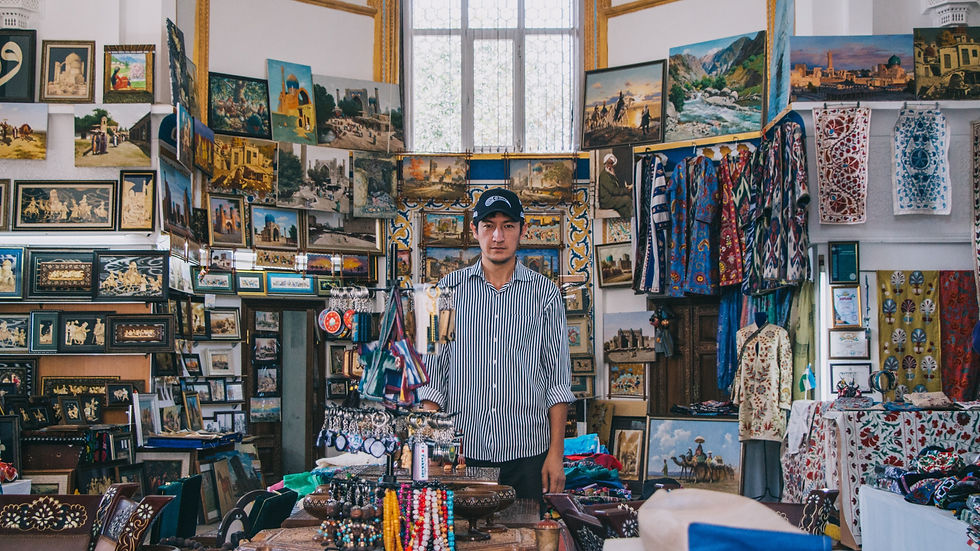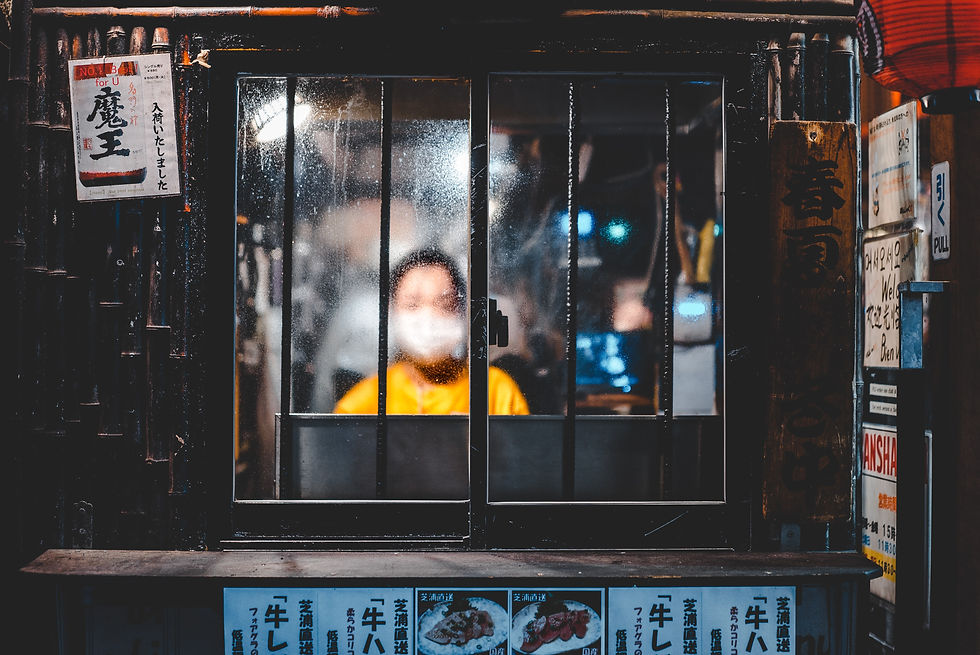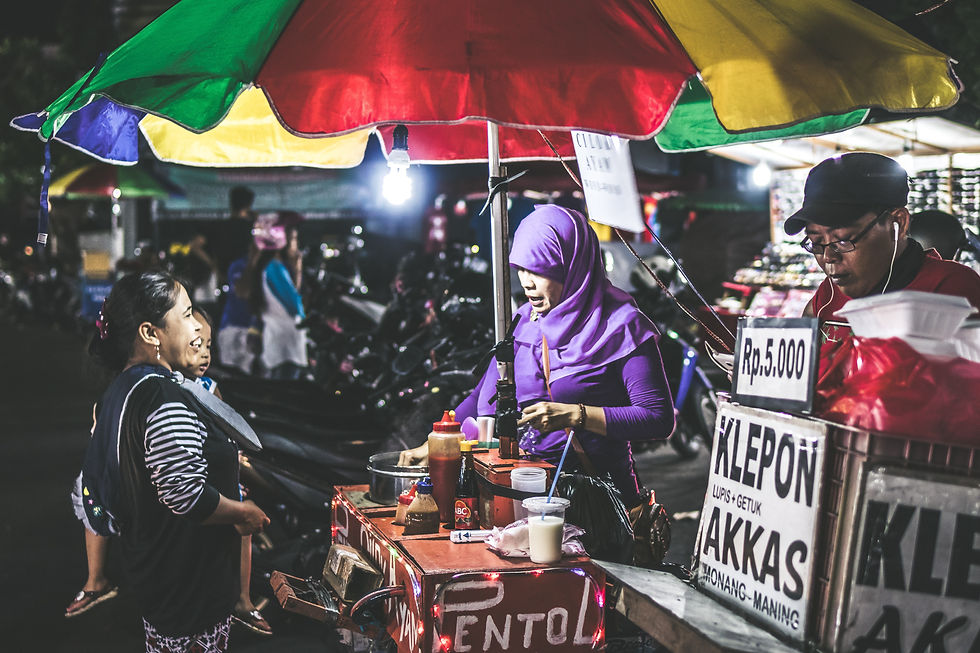By Youth Co:Lab and UNDP COVID Response Team for Asia-Pacific

COVID-19 is here to stay. Globally distributed, highly infectious, with a relatively low fatality rate – it has the attributes to do so, at least for now. With aggressive control measures now in place across many countries; alarm is escalating about the knock-on effects of lockdowns, particularly on the poorest and most vulnerable. The pandemic and resulting containment measures have triggered a massive global supply and demand shock, amplified in the financial sector. Micro, small and medium-sized enterprises (MSMEs) and self-employed workers are particularly at risk. In China, a nationwide survey found that only one in three MSMEs had cashflow to survive three months. In Asia-Pacific, the crisis is projected to wipe out seven percent of working hours – equivalent to 150 million full-time workers – in the next quarter, with informal sector workers most vulnerable. In this post, we review the types of policy responses that can help to mitigate the impacts of the crisis on MSMEs, the self-employed and their households, with examples from Asia-Pacific. .

Of course, what a small business looks like varies vastly across Asia-Pacific. So, too, does the capacity of each country’s safety net. As with virus containment responses, one size response doesn’t fit all. And measures to support MSMEs and the self-employed cannot be considered in isolation from measures to support households. From cash transfers to informal sector workers, to loans and tax relief for small businesses, to bailouts to large firms conditional on contracting small firms in their supply chains; governments can use different instruments to try and keep MSMEs in business, minimise job losses and cushion households against income shocks. But, as they formulate record stimulus packages, policymakers are also being called upon to not let the crisis go to waste. Recovery packages involve many choices – from which sectors and firms to support, to which conditions to attach – that have long-term, systemic consequences. Instead of using measures that restore ‘business as usual’ and exacerbate existing inequalities; the COVID-19 crisis creates an opening to push transition to more inclusive and sustainable economies.

Below are some of the types of measures that governments can use to protect MSMEs and own-account workers, with examples from Asia-Pacific. The aim is not to assess their effectiveness here, but to quickly share information from the region. An extensive list of country examples is available here. The measures can be grouped into three broad categories: 1) Measures to reduce small business outgoings; 2) Measures to increase small business incoming cashflow; and 3) Measures to protect livelihoods. Measures to reduce small business outgoings To try and stem waves of bankruptcies and job losses from small businesses facing COVID-induced cashflow crises; many governments are using tax cuts, wage subsidies and more to reduce their outgoings. Examples:
Tax relief for MSMEs: Many countries are delaying payment deadlines or cutting rates for small businesses. For example, China and South Korea have deferred tax deadlines and reduced VAT for small and medium-sized enterprises (SMEs). Countries such as Indonesia and Cambodia have cut rates in priority sectors.
Wage subsidies: Governments can cover a share of wages on condition that employers retain these workers. Malaysia will provide a subsidy equal to 50% of minimum wage that is expected to benefit three million workers. Mongolia will provide $72 per month to affected companies for each retained employee.
Social insurance subsidies: Some governments are subsidising employer contributions to reduce small business costs of retaining staff. The Indian government will cover employer contributions for firms of up to 100 workers. In China, MSMEs are now exempt from social insurance contributions.
Financial obligation subsidies: Some governments are subsidising rent and utilities, or freezing interest on SME loans. For example, South Korea is deferring electricity bills and subsidising rent for small businesses.

Measures to increase small business incoming cashflow Countries are using rate reductions, soft loans, re-financing and guarantees to improve MSME liquidity. Some are subsidising MSMEs to ‘COVID-proof’ their businesses to increase their chance of survival. Governments can also make support to large firms conditional on them contracting MSMEs, increasing small businesses’ revenue.
Monetary measures: China cut rates, provided liquidity, set up a refinancing facility, and reduced reserve thresholds for banks lending to SMEs. Indonesia has relaxed regulations for SME loan restructuring. India has changed regulations to promote MSME credit flow. Pakistan has extended limits on SME credit by 44%. Fiji’s central bank will make $26 million available for SME lending.
Fiscal measures: Japan has allocated $14.8 billion to zero-interest, guaranteed MSME loans. Iran has announced low-interest SME loans. In Vietnam, affected firms are eligible for concessional loans. Cambodia has allocated $50 million for low-interest SME loans. Myanmar has made $70 million available for soft loans to SMEs.
Structural measures: China is providing incentives to large firms to contract SMEs. Malaysia Digital Economy Corporation is offering digital solutions for SMEs. Japan is subsidising SMEs’ adoption of e-commerce solutions.

Measures to protect livelihoods
Given high rates of informal and own-account work, measures to support MSMEs must be considered holistically with broader measures to protect livelihoods. Governments are expanding and adapting safety nets and using other levers to protect households experiencing income shocks.
Targeted cash transfers: The Philippines will provide 70% of households with $100-160 per month. Indonesia will expand its flagship cash transfer scheme and increase benefits by 25%. Pakistan’s Ehsaas Emergency Cash programme will provide $72 to 12 million families. India is rolling out cash transfer schemes at federal and state level. Thailand will provide $151 per month to nine million workers not covered by the Social Security Fund.
Contributory social insurance schemes: Countries including Malaysia, Thailand and the Philippines are expanding the coverage and benefit levels of unemployment insurance schemes.
Universal cash transfers: Singapore will provide one-off universal payments of $300-900 dependent on income. Hong Kong SAR, China will provide universal payments of $1,280.
Subsidising basic services and obligations: Countries including Indonesia, Malaysia and Nepal are subsidising electricity. India, Bangladesh, Nepal and more are providing food subsidies. Some are freezing consumer loans.
Skills and job search: Indonesia’s Kartu Pra-Kerja skills programme will be made accessible to six million informal workers. Malaysia is subsidising short courses in digital skills. Cambodia will provide job search services.

Reviewing the policy responses from Asia-Pacific so far, there are many welcome measures; but also scope for bolder, more transformative thinking – How can governments look beyond sectors that have brought their economies to this point, and chart a new course to greener, more inclusive sectors? How can conditions attached to stimulus packages shift power to workers and MSMEs and build greater resilience into the system? How can measures today reduce the long-term vulnerability of migrants, women and youth? How can recovery incentivise inclusive innovation? Many countries have introduced a first tranche of policy responses, but many more will be needed. Governments must balance acting fast; with designing measures that build towards a clear long-term vision. We have a window of opportunity to use the COVID-19 crisis to push transition to more inclusive, sustainable economies. This will determine if we “bounce back” to the status quo, or “bounce forward” to a better world.
UNDP is on the ground supporting 170 countries and territories to prepare for, respond to and recover from the COVID-19 pandemic, focusing particularly on the most vulnerable. Read more on UNDP’s integrated response to COVID-19 here or contact Francisco Santos-Jara Padron in Asia-Pacific. Co-led by UNDP and the Citi Foundation, Youth Co:Lab establishes a common agenda for Asia-Pacific countries to support youth entrepreneurship. Read the results of Youth Co:Lab's survey of young entrepreneurs on how COVID-19 is affecting their businesses here, and for more information contact the author Ellie Horrocks.


Comments